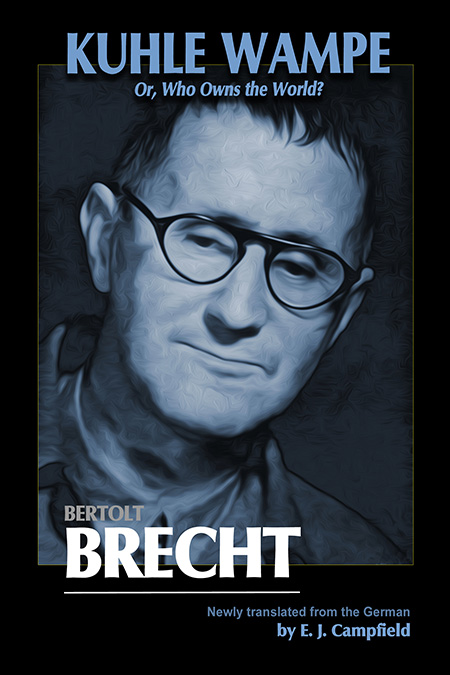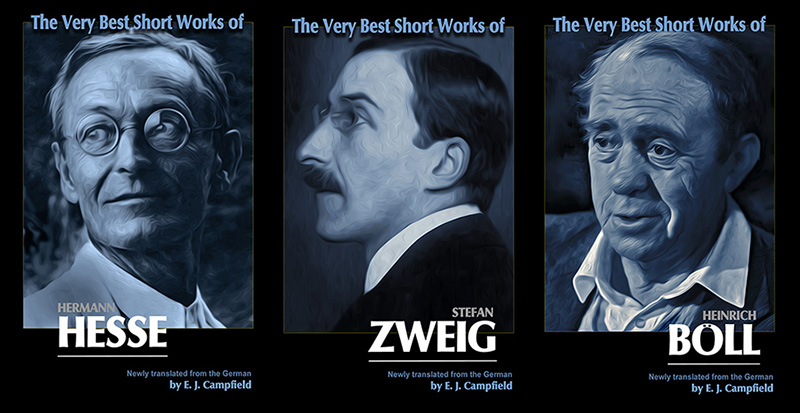The most prominent figure in 20th century European theatre, dramatist Bertolt Brecht also worked with limited success in Germany and Hollywood as a screenwriter and producer. Brecht is credited as co-author of the screenplays for five movies and numerous scenarios for films which never saw production. His first film script, an adaptation of his own Three Penny Opera, was directed by G.W. Pabst. But the film's producers objected to Brecht's political slant, and by the time it was completed and shot, the script retained little Brechtian flavor.
The screenplays and pitch scenarios from Brecht's Hollywood exile period (1941-47) all fell victim of the industry's assembly line approach to film making. This is particularly so of Hangmen Also Die (auteured by Fritz Lang) and an adaptation of Brecht's Herr Puntila. His Mother Courage script languished in development hell more than three years, only to be pulled from production shortly after shooting began and never finished. Overall the Brecht film experience was a dismal disappointment.
The only film project through which Brecht achieved any real degree of satisfaction was his own independent production of Kuhle Wampe (1932) which he co-wrote with Ernst Ottwald (pen name of German writer/playwright Ernst Gottwalt Nicolas). Despite academic debate that Brecht contributed only storyline, sparse dialogue and his not-insignificant name to the script, while it was Ottwald who was the main writer on the project, Kuhle Wampe is a significant work of Weimar era German cinema and remains unquestionably the best example of Brechtian film. Though Bulgarian-born Slatan Dudow was director on the project, the final sequence of the picture, in which the lead characters ride home from a sports rally on a subway train, many Brecht pundits have concluded was both written and directed entirely by Bertolt Brecht.
There is precious little good material on Brecht and film in English translation. The links that follow include my translation of an excerpt from Kuhle Wampe's opening act, and my translations of two Brecht essays regarding Kuhle Wampe, all as they appeared in the Winter 1982 issue of Prism International, the literary journal of the University of British Columbia at Vancouver.
I have also included a link for my English translation of the complete Kuhle Wampe script, rendered in modern Hollywood screenplay format. This is a project that I began many years ago as part of my graduate thesis in film. As no copy of the original German Kuhle Wampe script is known to have survived, my work is a transcription / translation from the film itself.
In late April 1980, I had occasion to meet and chat with Brecht translator and über-scholar Eric Bentley at a dress rehearsal for a production of Brecht on Brecht that included a selection from my English translation of A Small Contribution on the Topic of Realism (link below). Bentley told me what had always struck him as peculiar about Kuhle Wampe was the picture's seemingly naive unawareness of the looming Nazi threat that resulted in Brecht with wife Helene Weigel, Ernst Ottwald with wife Waltraut, Hanns Eisler, Slatan Dudow and Ernst Busch with wife Eva all fleeing Germany mere months after Kuhle Wampe's Berlin premiere.
Eric Bentley died August 5, 2020 at age 103, at that time still working and residing in New York City. Read an excellent February 2016 interview with him at this AMERICAN THEATRE link.
Also below are links for my translations of three additional Brecht commentaries on the film business that are, in my experience, ironically as true today as they were many decades ago when Brecht first penned them.
· Kuhle Wampe (Or, Who Owns the World?) (screenplay first act excerpt)
· Sound Film: Kuhle Wampe or Who Owns the World? (essay)
· A Small Contribution on the Topic of Realism (essay)· Kuhle Wampe (Or, Who Owns the World?) (complete Hollywood format screenplay)
· On Film: A Discussion (essay)
· Concerning Film (essay)
· Hollywood (poetry)
Two original movie theater posters for Kuhle Wampe... "Released after several bans!"
The film premiered at the Atrium in Berlin on May 30, 1932. It was seen there by more than 14,000 viewers during its first week and held over for another week, as it opened wider at theaters throughout Berlin and in Hamburg.
New Titles - Currently Editing...



